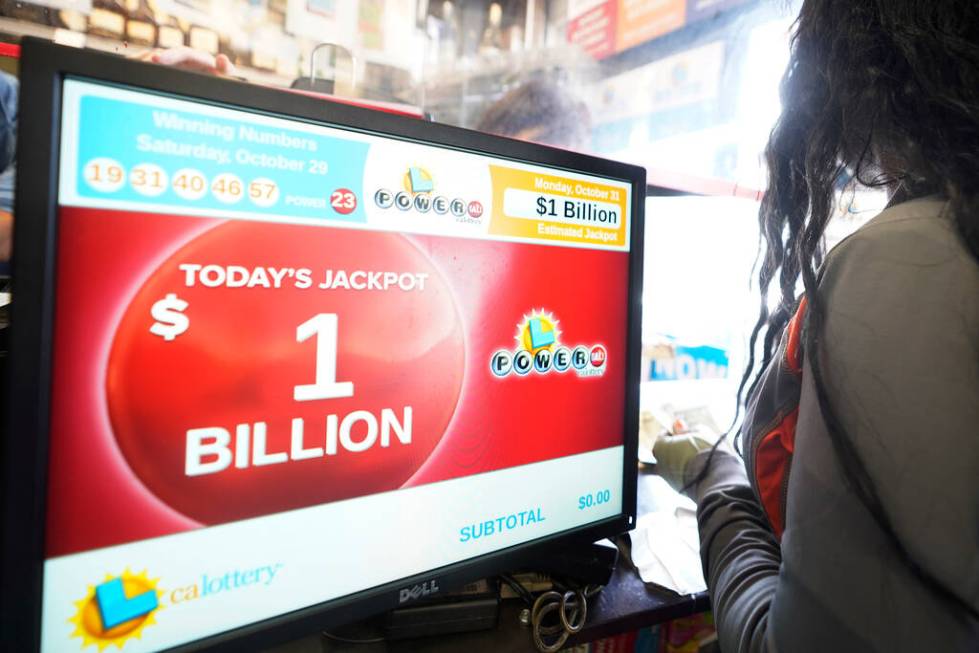A state lottery in Nevada? An expert says chances are good

DENVER – An industry expert on state lotteries believes Nevada policymakers can get through the arduous process of forming a lottery that would enable people to buy tickets at local supermarkets and convenience stores.
Scott Gunn, senior vice president of corporate public affairs for IGT, said Thursday that he’s confident state leaders can get through the lengthy process that likely wouldn’t conclude until at least 2026.
Gunn made his remarks at the first day of sessions of the National Council of Legislators from Gaming States, meeting over three days less than a mile from Colorado’s Capitol building.
The convention, which has attracted nearly 300 people, including 100 lawmakers and 100 regulators from states that offer some form of gaming, enables policymakers from around the country to meet and compare notes on providing successful gambling experiences for their citizens.
There are 22 member states, including its newest addition, California, and on the opening day of the conference, industry experts discussed trends and opportunities in commercial casinos, sports betting, iGaming, tribal gaming, pari-mutuel wagering and lotteries.
Sessions through Saturday also will address responsible gaming, relationships between state and federal governments on gambling, diversity, equity and inclusion and other relevant topics.
In his overview on lotteries, Gunn said there are 45 state lotteries plus the District of Columbia, Puerto Rico and the U.S. Virgin Island that in 2022 reported $99.3 billion in sales. There are more than 216,000 lottery retailers that get a cut of the sales.
In 2022, that $99.3 billion in sales resulted in $65.3 million going back to winners as prize money, $28.7 million to government entities and $5.9 million to retailers as commissions.
Nevada’s latest bid to create a lottery got a boost in the recently concluded legislative session.
Assembly Joint Resolution 5, a proposed constitutional amendment removing the prohibition on state lotteries, was approved by the Nevada Assembly in April and then passed the state Senate in a 12-8 vote in May.
But according to law, a constitutional amendment must pass through two legislative sessions before it can go to a vote of the people.
That’s why Nevadans won’t have a say until a general election in 2026, if the measure passes again in the 2025 legislative session. The 2025 bill has to be the same one approved this year.
“It’s a lengthy process to get that approved over two legislative sessions and then a constitutional amendment,” Gunn said. “I think the policymakers in Nevada will get it right.
“I’m sure some of my operator colleagues probably have opinions on that as well. I wish the policymakers and the operators in Nevada good luck in figuring that out.”
Gunn was referring to the state’s casino industry, which in past years has fought against the establishment of a lottery.
In June, Virginia Valentine, president of the Nevada Resorts Association, said the group would continue raising concerns about a lottery’s effect on “the state’s economic engine.”
“Unlike the gaming industry, lotteries provide almost no employment and create no economic development or capital investment,” Valentine said in a statement.
Democrats propose using a state lottery for a reliable revenue stream for youth mental health services. During the legislative session, Culinary Local 226 lobbied the state in support of the idea. But the proposed amendment makes no mention of how the revenue could be used — or even how a lottery could be established.
Nevada Assemblyman Cameron “C.H.” Miller, D-North Las Vegas, shepherded the legislation through the 2023 session and acknowledged the lengthy process necessary to bring a state lottery to reality. He said it’s now a waiting game, and he hopes those who voted to approve AJR 5 will be re-elected.
“I think that this body has indicated that there’s a willingness to move this forward,” Miller said in a June interview. “We still have another election to go through to see if the next legislative body will also want to see the voters get an opportunity to vote on this.”
Contact Richard N. Velotta at rvelotta@reviewjournal.com or 702-477-3893. Follow @RickVelotta on Twitter.